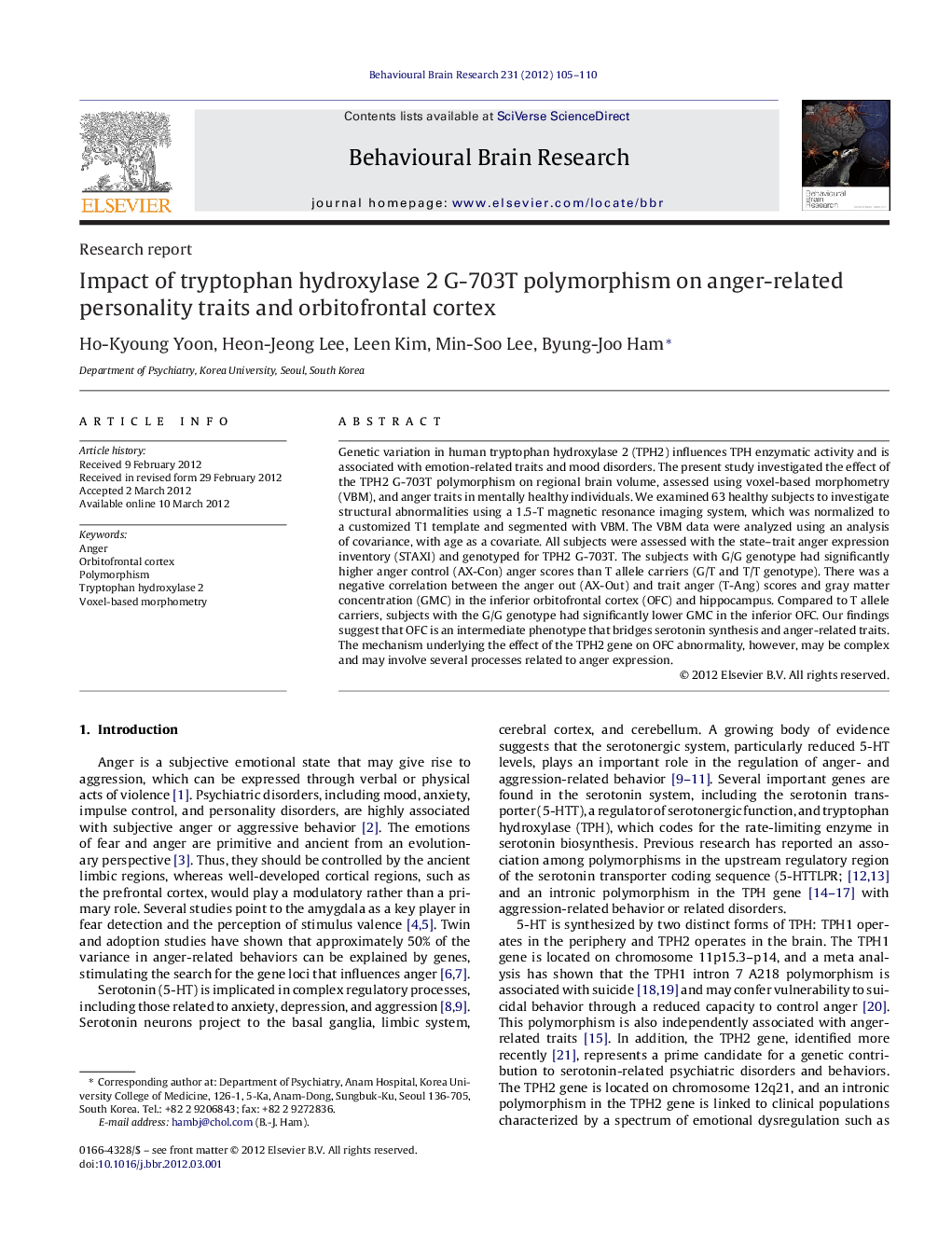| Article ID | Journal | Published Year | Pages | File Type |
|---|---|---|---|---|
| 4313024 | Behavioural Brain Research | 2012 | 6 Pages |
Genetic variation in human tryptophan hydroxylase 2 (TPH2) influences TPH enzymatic activity and is associated with emotion-related traits and mood disorders. The present study investigated the effect of the TPH2 G-703T polymorphism on regional brain volume, assessed using voxel-based morphometry (VBM), and anger traits in mentally healthy individuals. We examined 63 healthy subjects to investigate structural abnormalities using a 1.5-T magnetic resonance imaging system, which was normalized to a customized T1 template and segmented with VBM. The VBM data were analyzed using an analysis of covariance, with age as a covariate. All subjects were assessed with the state–trait anger expression inventory (STAXI) and genotyped for TPH2 G-703T. The subjects with G/G genotype had significantly higher anger control (AX-Con) anger scores than T allele carriers (G/T and T/T genotype). There was a negative correlation between the anger out (AX-Out) and trait anger (T-Ang) scores and gray matter concentration (GMC) in the inferior orbitofrontal cortex (OFC) and hippocampus. Compared to T allele carriers, subjects with the G/G genotype had significantly lower GMC in the inferior OFC. Our findings suggest that OFC is an intermediate phenotype that bridges serotonin synthesis and anger-related traits. The mechanism underlying the effect of the TPH2 gene on OFC abnormality, however, may be complex and may involve several processes related to anger expression.
► We investigated the effect of the TPH2 G-703T SNP on brain and anger traits. ► Subjects with the G/G genotype had significantly higher AX-Con anger scores. ► Subjects with the G/G genotype had significantly lower GMCs in the inferior OFC. ► OFC is an intermediate phenotype that bridges serotonin synthesis and anger traits.
